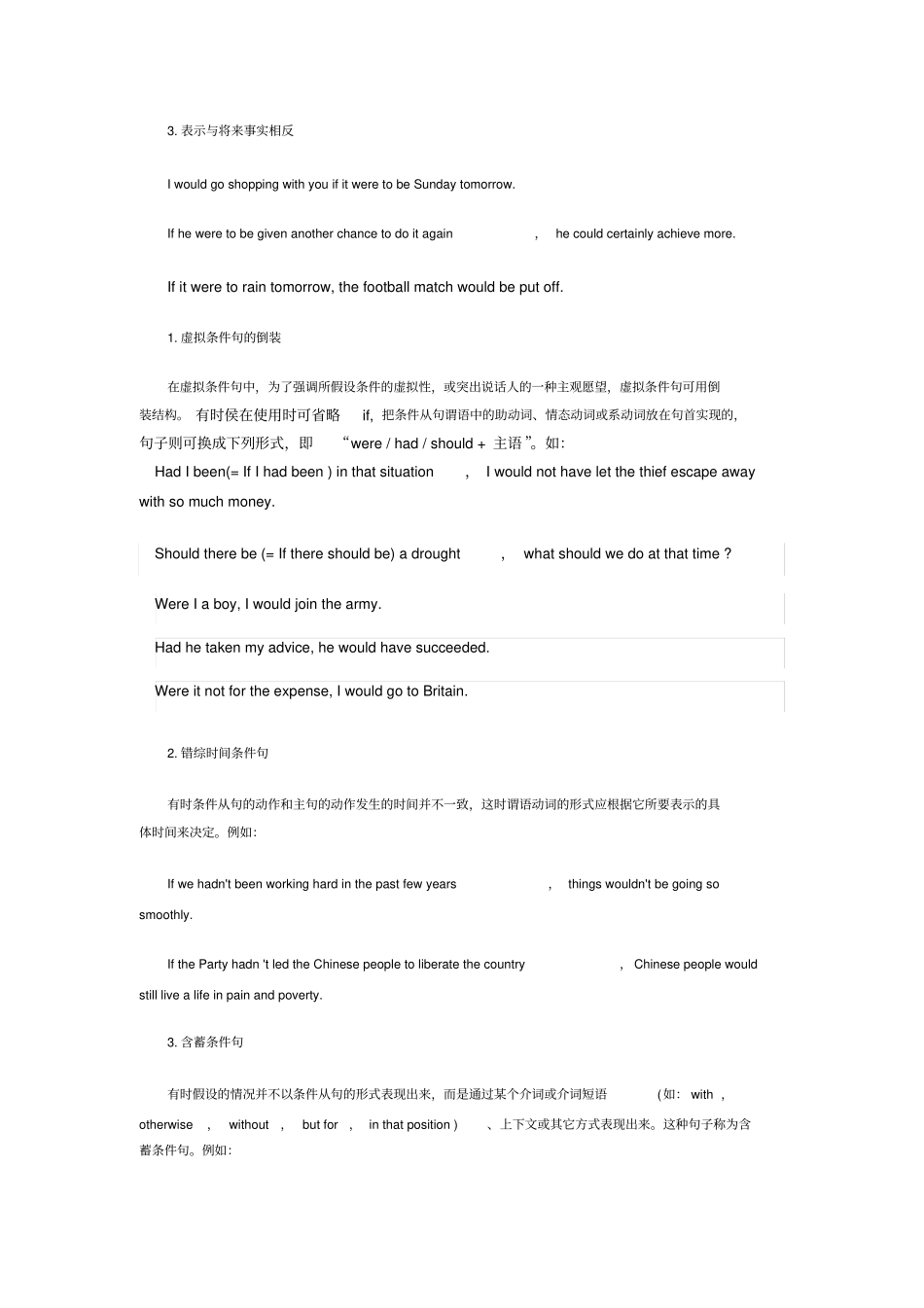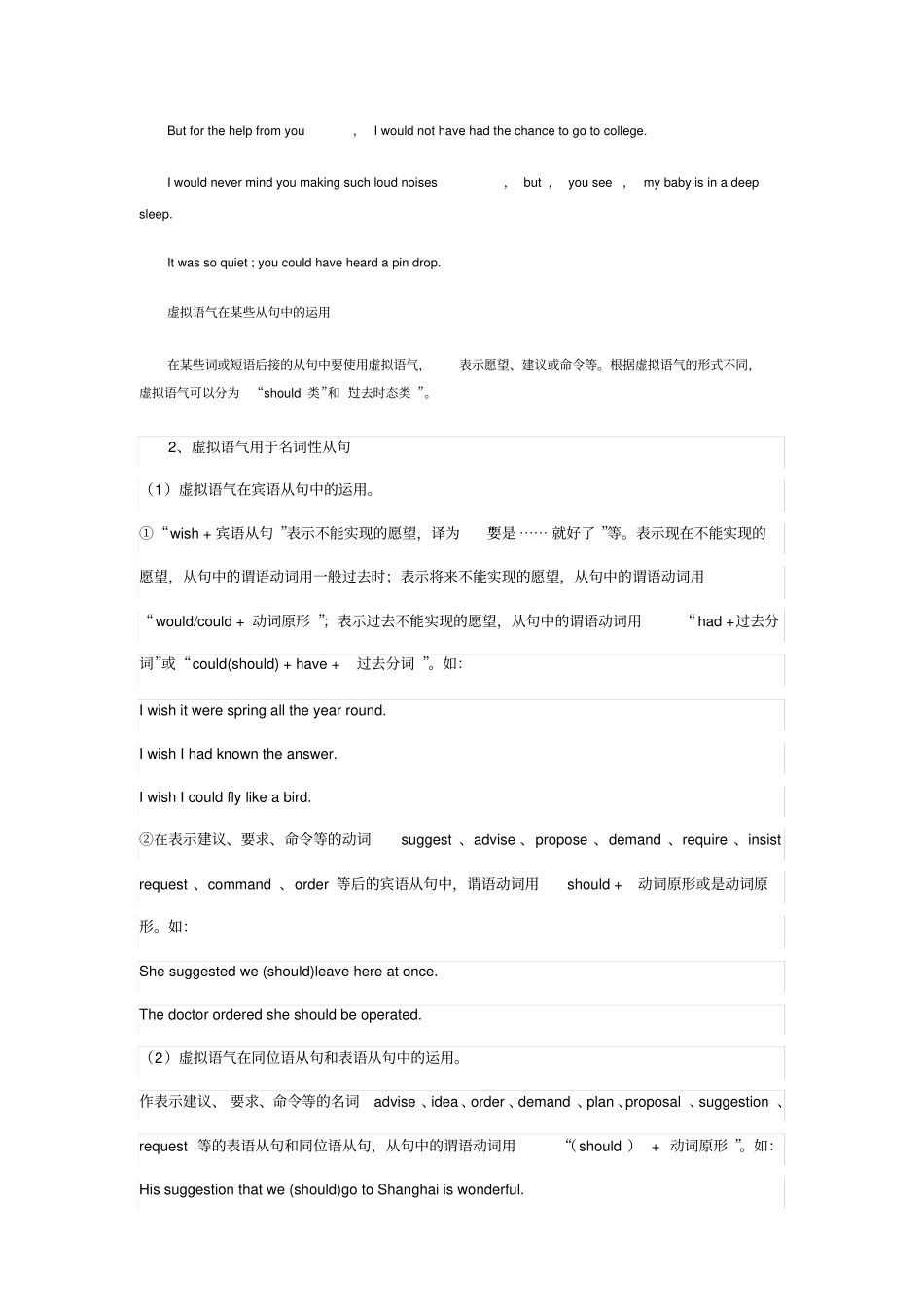虚拟语气语法归纳虚拟语气的使用主要体现在三个方面:虚拟条件句、虚拟语气在某些从句中的运用,以及虚拟语气的一些特殊用法。虚拟条件句虚拟条件句就是对现实条件的一种虚拟假设,所假设的条件一般不符合事实或与事实相反或在现实中发生的可能性极小。根据时间的不同,虚拟条件句可分为三种,即与现在事实相反的虚拟条件句、与过去事实相反的虚拟条件句及与将来事实相反的虚拟条件句。具体情况请看下表:例句:1. 表示与现在事实相反If I had enough money now , I would lend it to you. If I were you , I would go to tell him the real feeling upon him. If I were a boy, I would join the army. If the had time, she should go with you. 2. 表示与过去事实相反If he had taken your advice , he wouldn't have made such a bad mistake. She would have come to enjoy the party if she hadn't been very busy. If he had taken my advice, he would have succeeded in the competition.3. 表示与将来事实相反I would go shopping with you if it were to be Sunday tomorrow. If he were to be given another chance to do it again, he could certainly achieve more. If it were to rain tomorrow, the football match would be put off. 1. 虚拟条件句的倒装在虚拟条件句中,为了强调所假设条件的虚拟性,或突出说话人的一种主观愿望,虚拟条件句可用倒装结构。 有时侯在使用时可省略if, 把条件从句谓语中的助动词、情态动词或系动词放在句首实现的,句子则可换成下列形式,即“were / had / should + 主语 ”。如:Had I been(= If I had been ) in that situation, I would not have let the thief escape away with so much money. Should there be (= If there should be) a drought, what should we do at that time ? Were I a boy, I would join the army. Had he taken my advice, he would have succeeded. Were it not for the expense, I would go to Britain. 2. 错综时间条件句有时条件从句的动作和主句的动作发生的时间并不一致,这时谓语动词的形式应根据它所要表示的具体时间...


